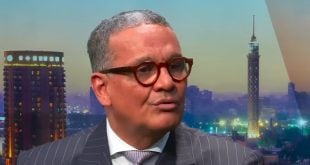CameroonOnline.ORG | At least 48 civilians were killed across Cameroon as security forces moved to quell protests following the re-election of President Paul Biya, according to data shared with Reuters by two United Nations sources. The unrest has triggered widespread tension, empty streets, and an opposition-led lockdown that has further disrupted economic life in several regions.
Deadly Response to Election Protests
The UN sources reported that most of the victims were killed by live ammunition, while others died from injuries sustained when beaten with batons and sticks. Nearly half of the deaths occurred in the Littoral Region, which includes the port city of Douala, where protests against the official election results were particularly intense.
The Cameroonian government has not released its own figures on casualties, and officials have not commented on the reports.
President Paul Biya, who is 92 years old and has ruled since 1982, was declared the winner of the October 12 election with 53.66% of the vote. His main rival, opposition candidate Issa Tchiroma Bakary, a former government spokesman, received 35.19%. Bakary rejected the results, claiming victory and calling on Cameroonians to resist what he described as electoral manipulation.
The declaration of Biya’s victory sparked demonstrations across several cities. Civil society group Stand Up for Cameroon initially reported at least 23 deaths as security forces dispersed protesters. The UN’s higher toll now suggests the violence was more severe than earlier estimates.
Lockdown Deepens Economic Hardship
In response to the contested results, Tchiroma called for a three-day nationwide lockdown beginning Monday, urging citizens to “stay at home in silence” as a peaceful show of resistance. The call was met with widespread compliance in opposition strongholds such as Douala, Maroua, and Garoua.
“Let us keep our shops closed, suspend our activities, remain at home in silence, to demonstrate our solidarity,” Tchiroma said in his message.
The lockdown has left streets empty and businesses shuttered. Transport services have been disrupted, and residents report rising food prices. In Yaoundé, a five-liter bucket of potatoes that cost $3.50 last week now sells for nearly $8.80.
“We are afraid to step out,” said Caroline Akuh, a food vendor in Douala. “We are tired of this situation, but we also want change.”
In Garoua, where several people were killed during protests, some residents see the lockdown as an act of solidarity. “The lockdown is also a form of support we are showing to Tchiroma,” said Amadou Adji, whose niece was among those killed.
Government Condemnation and Growing Uncertainty
Authorities have condemned the protests, accusing the opposition of attempting to destabilize the country. Officials confirmed four deaths in the northern regions but did not acknowledge the higher toll reported by civil society and UN sources.
The recent violence marks one of the deadliest episodes in Cameroon’s political life in years. With Biya now beginning his eighth term amid growing public frustration, analysts warn that continued tensions could deepen the country’s political divide.
As the lockdown continues and the government maintains a firm stance, many Cameroonians remain anxious about what comes next. For now, much of the country waits in uneasy silence.
 CameroonOnline.org Cameroon news, Actualité Camerounaise, live Web TV & Radio, World News and a lot more
CameroonOnline.org Cameroon news, Actualité Camerounaise, live Web TV & Radio, World News and a lot more




